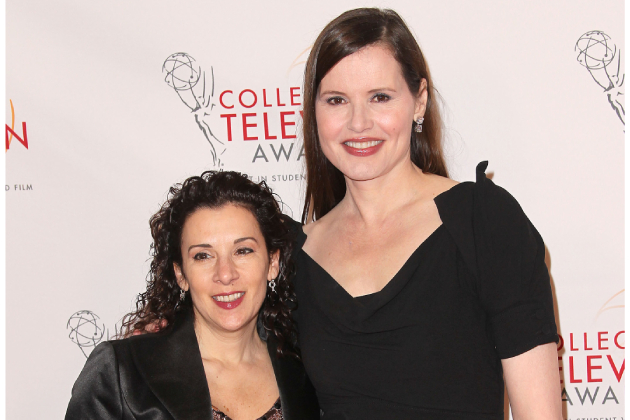Filmmakers are diving deep and exploring themes of social, economic and political unrest in many of the films screening at the 2017 Hot Docs Canadian International Documentary Film Festival.
“There is a willingness, a desire and need for filmmakers to make these deep dives into issues and subjects and provide us with a holistic perspective on the state of the world,” Shane Smith, director of programming for the Toronto-based festival, told realscreen.
With 35 world premieres, and a total of 230 films from 58 countries the festival runs April 27 to May 7.
One film that looks at an emerging issue, that of predictive crime technology, is Pre-Crime from directors Matthias Heeder and Monika Hielscher. “Pre-crime” is a policing technique used in both the U.S. and Europe to identify “hot people”— those considered most likely to be either victims or perpetrators of a crime. The movie looks at how algorithms and forecasting software — which has been criticized for being inaccurate — is being used to collect, monitor and flag certain people.
Karin Jurschick’s Playing God (pictured, left), meanwhile, focuses on U.S. attorney Ken Feinberg — the man responsible for compensating victims of America’s most tragic events, from Agent Orange and the BP oil spill to Sandy Hook and 9/11.
“It’s a personal perspective on the subject of putting a dollar value on life and what it’s worth in this world and whose is worth more… He [Feinberg] certainly doesn’t have an easy job, but it is an important job of compensating and honoring those who have lost their lives on American soil,” said Smith of the documentary’s message.
Smith noted that, in the absence of a dominating theme in this year’s festival line up, there has been a move towards genre mash-ups — “particularly in the ability to tell these fascinating stories that will shock and surprise and resonate with the audience.”
He described a doc mash-up as one that combines and utilizes familiar documentary tropes, even fiction genres, to great effect.
For example, director Mark Grieco’s A River Below is an environmental-animal rights-thriller that follows a reality TV star and a renowned marine biologist as they each attempt to save the Amazon pink river dolphin from extinction.
Photon, from Polish director Norman Leto, also defies a single-category definition. The 107-minute doc looks at the biological foundations of human behavior, “as if Louis CK and Douglas Adams rewrote 2001 Space Odyssey,” said Smith.
The Road Movie from Dmitrii Kalashnikov is another feature that falls outside of the box. Kalashnikov uses YouTube footage from dash cams from cars in Russia to tell a story of the wider society.
“It’s a fascinating connection between what is being captured — by the neutral dash cams in peoples’ cars — and how people are responding to these altercations and how they relate to each other in the country at the moment,” according to Smith.
Personal stories are a staple of the festival — those that are powerful, personal accounts butt also point towards larger social, political and economic issues.
“The personal is political and these films use a micro approach — a personal story — to examine larger systemic issues,” Smith said in an email.
This year many of the directors are bringing a unique approach to subjects that cover issues from racism to corporate malfeasance in films such as Muhi – Generally Temporary, Strong Island, Quest, For Ahkeem, Unrest and I Am Another You.
As for any controversial titles, Smith noted Attiya Khan and Lawrence Jackman’s A Better Man (pictured, right) approaches the issue of domestic violence in a way he has never seen before in film. In the documentary, Khan and her ex-boyfriend discuss their violent relationship and what drove her ex to abuse her daily during the two years they dated.
“It will spark debate because of the way into the subject and because the subject itself comes back to the fore particularly when there are celebrity cases of domestic violence,” he said.
Hot Docs is also the place to see cinematic docs that “demand to be seen on the big screen,” said Smith.
In Life to Come, director Claudio Capanna’s choice of cinematography captures and reflects the struggle for life that a set of premature twins is experiencing.
Other films noted for cinematography are Bojana Burnac’s My Life Without Air and Brimstone & Glory from director Viktor Jakovleski.
With festival’s size and its range of programming, Hot Docs offers the space for films that might slip under the radar — especially those mid-length films like Audrius Stonys’ Woman and the Glacier, about Lithuanian scientist Aušra Revutaite who is the sole guardian of the remote Soviet-era glaciological station of Tuyuksu in Kazakhstan. And director Mária Rumanová’s Hotel Sunrise, which takes audiences into a small Slovakian town where the local Communist Party is making efforts to get back up and running.






























